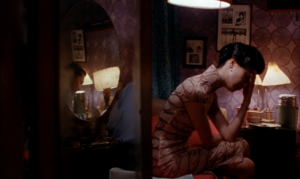Long considered an off-limits issue by many, unionisation is suddenly and quite dramatically back on the table for the videogames industry. The flashpoint came in March at the Game Developers Conference (GDC) in San Francisco, where International Game Developers Association (IGDA) head Jen MacLean hosted a roundtable discussion on the question of unionisation. In the lead-up to the panel, MacLean made a number of union-related comments that she herself admitted were ‘wishy-washy’ (preferring instead to focus on demand for jobs, the importance of capital and the alleged potential creative limitations that unionisation might bring), which seemed to merely galvanise the pro-union voices. An advocacy group was formed – Game Workers Unite – which circulated pamphlets and a zine with instructions for how to ‘stay alive in the industrial zone’. By the end of the long and heated roundtable, industry opinion had seemingly shifted in favour of unionising. ‘Many people afterwards told me that it felt like it was the entire room vs MacLean,’ says Liz Ryerson, one of the organisers of Game Workers Unite.
The terms of labour in the videogames industry have long been set by bosses and the status quo rather than by workers. There has never been a games-industry-specific union anywhere in the world (until last year, when The Syndicate of Video Game Workers was formed in France – another factor that surely influenced discussions at GDC). In the late 1970s, game designers fought to be credited as the creative force behind their games, with a group eventually leaving industry heavyweight Atari and forming Activision (which went on to produce games like David Crane’s Pitfall!) as a response. In the 1970s and 1980s, the history of videogames often seems to be characterised as ‘the creatives vs the suits’, and labour rights unfolded accordingly.
The last twenty years of labour relations in games have instead been broadly characterised by the practice of ‘crunch’. This is an industry term for an apparently unusual period of crisis – maybe a major trailer for your game is due in a month, maybe you’re getting ready to launch – during which work hours are expected to (often dramatically) intensify. Crunch weeks have ranged from a reported sixty hours to even 100 hours per week. This condition is usually sold to workers as an abnormality, though – and, sometimes, large bonuses are offered for such periods. However, for many companies, crunch practices have become built into standard game development cycles and are normalised as an expected part of the job. In 2004, an anonymous commentator called ‘EA Spouse’ (later revealed to be developer and author Erin Hoffman) famously wrote, ‘The extended hours were deliberate and planned; the management knew what they were doing as they did it.’ Hoffman’s blog post was widely shared and discussed in the games industry, but little concrete gains were made at the time.
Today, there is perhaps a sense that the working population of the videogames industry is ageing. Crunching – and giving up all home life and rest – may be possible or even ‘cool’ in your twenties, but it visibly leads to unsustainable careers and serious side effects for those thirty and older. Many of those leading the Game Workers Unite charge are older and have spoken about seeing their colleagues ‘age out’ of the industry at thirty-five or younger. From discussions coming out of GDC, there is also the growing sense that a powerful games-workers union might help to protect women, people of colour and other marginalised groups within the industry, something that the events of Gamergate illustrated to be beyond the capacity or outside the interests of corporations and industry groups.
The question is: will this momentum for unionisation translate into the Australian context? After all, every nation’s labour system is different, and unions function under different circumstances all around the globe. More than a decade ago, when the Melburnian chapter of the IGDA was formed, there was early talk of unionisation, which was strongly challenged by local industry heads. However, GDC-like momentum may yet be coming: at the 2018 Freeplay Independent Games Festival, there was a session on game development and unionisation – and, in contrast to the one at GDC, it was run by a pro-union speaker. Tim Colwill is a trade-union officer working in Australia’s food-manufacturing industry, but he brings with him a background in journalism covering the Australian games industry as well as firsthand experience as a worker at Western Australian company Interzone Games (which, in 2010, was liquidated while owing A$1 million to the Australian Tax Office, and another A$500,000 to past and present staff, including Colwill).
We are yet to see whether games workers will, in fact, unite, but one thing is already clear: the conversation around their rights has shifted dramatically in only a matter of months. What comes next is in their hands.





